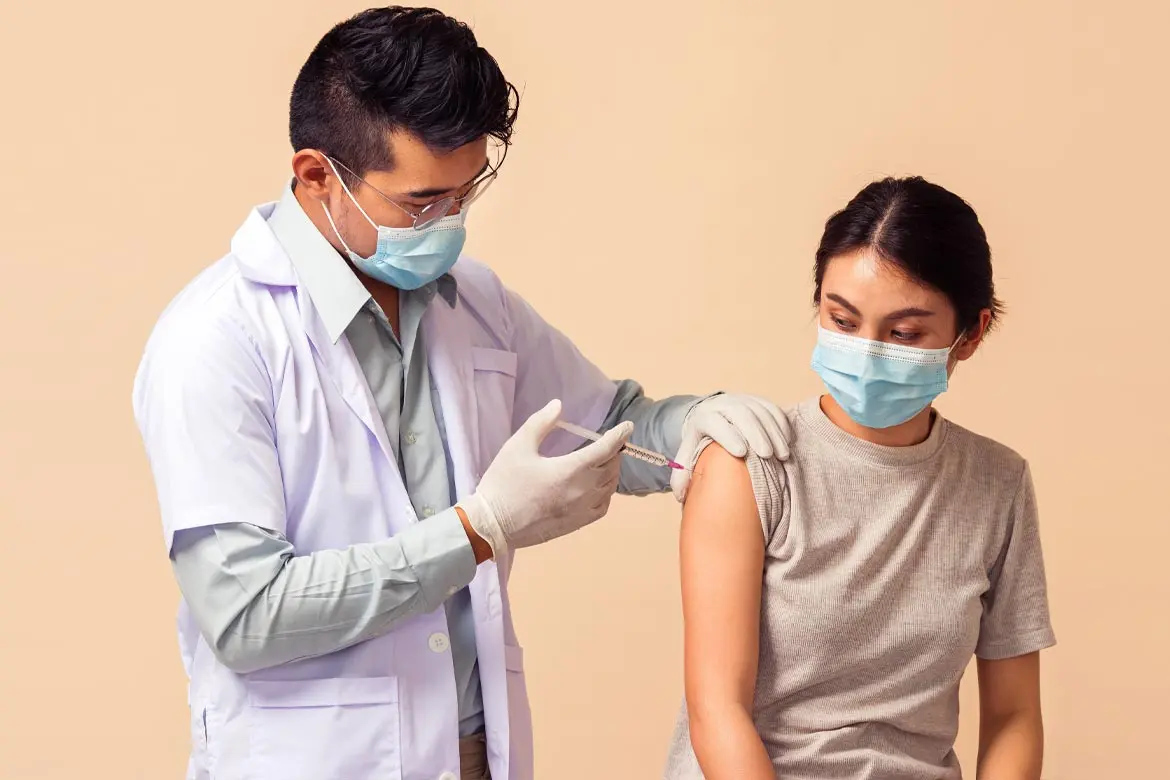Dr Ling Li Min
Infectious Disease Physician


Source: Shutterstock
Infectious Disease Physician
2020 will be remembered as the year that saw the COVID-19 bring the entire world to a (near) standstill.
The good thing out of this pandemic was the development, approval, and subsequent production of a viable COVID-19 vaccine in a fraction of the time it would have usually taken. And pharmaceutical companies from every corner of the globe are increasing production of the COVID-19 vaccine as you read this.
This is a major step forward, as it prepares us to return to normal life by achieving 'herd immunity'. This is used to describe a large majority of the population with some degree of immunity to a virus. Through herd immunity, the risk of large-scale outbreaks – like what we have witnessed in the past year – is significantly reduced.
However, even with the COVID-19 vaccine, important questions remain. Are you still at risk of being infected with COVID-19 even after receiving the vaccine? And is the vaccine still necessary if you've contracted, and recovered, from COVID-19 before?
Let's find out together.
Presently, 2 COVID-19 vaccines have been approved for use in Singapore. Developed by Pfizer BioNTech and Moderna respectively, both are messenger (mRNA) vaccines which have been found to be 94 – 95% effective at preventing a COVID-19 infection.
This means that 5 out of 100 people can still get a symptomatic COVID-19 infection despite having received the vaccination.
These mRNA vaccines are a 2-dose vaccine. The first dose primes the immune system to 'protect' the body against COVID-19, while the second further enhances or augments the immune system. Studies have shown that it takes about 2 weeks after the second dose for our immune system to be fully activated.
This means that one should still practise safe distancing, exercise caution in social settings, and observe strict personal hygiene habits, during the period of vaccination (before their immune system kicks in) and after (until there is firm evidence that the vaccine prevents transmission).
Yes, they should. Re-infections can occur, especially when natural immunity wanes. Studies have indicated that the natural immunity may last up to 8 months.
Additionally, those who have recovered from COVID-19 were found to have antibodies that were up to 10 times higher than vaccinated individuals who did not previously test positive for COVID-19. At the same time, these people are also less likely to experience pain at the site of injection, which is a common side effect of the mRNA vaccines.
This is the new normal, and life won't return to the way it was anytime soon. As we learn more about the virus, each year will be better than the previous one.
COVID-19 is likely to stay for some time, so in order to protect our loved ones, ourselves and being responsible for the community that we live in, we need to keep up our vigilance with safe management measures and get vaccinated.